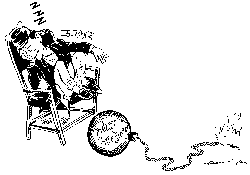 As violence, abduction, and extortion become common and the relationship between pahadis and madhesis worsens, it is becoming clear that Kathmandu's attitude towards the tarai has not changed.
As violence, abduction, and extortion become common and the relationship between pahadis and madhesis worsens, it is becoming clear that Kathmandu's attitude towards the tarai has not changed.
During the Rana period, madhesis needed a visa to enter Kathmandu. BP Koirala tried to be more inclusive, but was not successful. The 1990 movement came and went, governments changed, but the tarai was never a priority. Pahadis started thinking of all madhesis as Sadbhabana party workers. Similarly, after the Madhes Uprising all madhesis have become Forum workers. There are a handful of organisations against pahadis, but Kathmandu seems to think all of the tarai is anti-pahadi.
When the Madhes Uprising started, people thought it was just another protest by royalists and called it a law and order issue, and Badri Prasad Mandal and Kamal Thapa were arrested. When the situation still did not improve, the protests were called a problem of social harmony. After the prime minister's second address, the madhes issue went back to being a law and order problem. The government has never given the tarai a serious thought.
Under pressure from the Maoists, the government is beginning to think like them. Before the Madhes Uprising, the Maoists thought they had influence in the entire tarai region. From Lahan to Gaur the Maoists have had to bear losses. After their central committee meeting in June the Maoists have started defining the madhes issue in terms of nationalism and Maoist chairman Pushpa Kamal Dahal has publicly said that the trouble in the tarai is the work of criminal elements. The NC is quiet and the UML flip-flops, and the Maoists say the madhes issue is related to class, and not identity or inclusiveness. The prime minister who was eager to find a solution for the tarai in January is now preparing a 'special security system' now.
It's not just the government and the political parties who do not know what to do about the madhes issue. The madhesi community itself does not have an agenda. The uprising was leaderless and even so-called madhesi intellectuals do not argue logically on issues of identity and inclusiveness. The Uprising could also not identify the enemies of within the madhesi community and friends among pahadis.
This complex region is caught in a war started a decade ago by pahadis and criminal politics of UP and Bihar. The madhesi revolution has to be linked to the essence and uniqueness of the tarai. It has to be redefined and taken in a new direction. If the state tries to suppress it in the name of peace and security, the movement will turn communal and violent.


